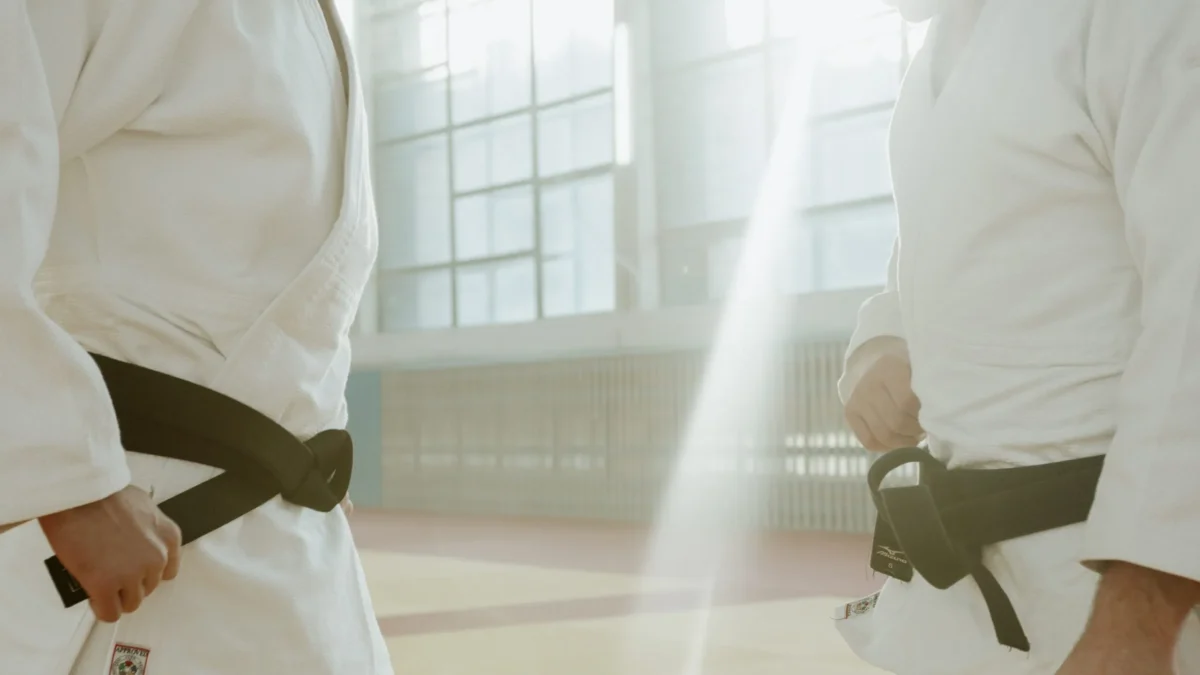Do you have a relationship in your life you would like to be better? With a romantic partner, a work colleague, a child? Do you ever have difficulty reading a social situation and how to best build rapport with someone? Do you find it hard to start a conversation with a stranger?
Join the club!
The fact is, despite the fact that all of us have to have social interactions and need quality relationships, we are often poorly equipped to deal well with people, even those we love most. This is why having emotional intelligence and so-called soft skills are very important.
I have spent years leading teams and coaching individuals – using as well as teaching these skills – and I have learned that they are some key steps to effective relationships and some really simple, useful models to help remember them.
The Principles of Aikido
One I particularly like is the parallel found between effective communication and martial arts and particularly the principles of Aikido. The philosophy of Aikido is essentially about harmony, not conflict, and therefore equates very well to social interactions.
There are three core Aikido principles that map very well to relationships. These precepts are:
- Being Centered (represented by the circle)
- Entering (the triangle) and
- Turning (the square)
Free Personal Leadership Action Plan
Just sign up here to receive your free copy
Centring (The Circle)
When it comes to relationships, as with so much in life, you need to start with understanding yourself. Centring reflects this need. Before building rapport or entering into a relationship, you need to understand your own core principles, your purpose and how to renew your energy. If you are not centred, you will be ignored, pushed around or pushed over. You will come across as lacking in direction, unsure or flaky. There are lots of good exercises to understand your personal values better, and if you would like to know more, you can read my post on What are your personal values?
An Easy Breathing Technique
If you want one quick and easy way to feel more centred then try this – you can do it right now. Breathe. One of the greatest tools to help control your emotions, centre yourself and remain in the moment (i.e. mindfulness) is to breathe. Almost everyone knows that taking a deep breath or counting to ten can help when we are faced with a challenge or boiling emotions.
There are many different breathing techniques taught in martial arts, yoga and sports but one simple and effective one I like is ‘power breaths’. To do this all you do is:
- Breathe in for a count of three, and hold your breath for a count of three,
- Then breathe out for a count of three and hold again for a count of three.
- Then repeat. I find that 3 sets of power breaths are an excellent way to calm myself, regain my energy and my focus.
Entering (The triangle)
‘Entering’ is when you close with a partner or opponent. It is when the interaction starts in Aikido when you move into someone else’s circle. In social terms, this is when you walk up to someone and attempt to start a conversation.
For a relationship, successful entering is all about building rapport. To build the triangle of rapport you need to have good body language, empathetic listening, and effective questioning technique.
In my experience, the most important part of rapport building – and developing any meaningful relationship – is truly listening to the other person. Be genuinely interested in what they are saying, not just thinking about what you want to say in response. And, most importantly, don’t interrupt them. What do you do with that thought that just popped into your head as they were speaking? Keep it in your head and go back to listening. That amazing story that they have just reminded you of? Keep it for later. That burning opinion that you have? Wait, listen and seek to understand their point of view further.
When they do take a pause and you open your mouth again, think about a question to help you understand or expand more upon what they just said rather than just giving your opinion.
Turning/extending (the square)
The final principle is concerned with the influence you have on the person you are interacting with. In this case, you are not trying to physically strike, grapple or throw them but you are trying to persuade them in some way. That might be persuading them to like you, encouraging them to do something.
This is not about somehow fooling or tricking someone. This is about being your authentic self – as represented in the circle. And as with Aikido, it is also not about overpowering the other person or forcing them to comply. It is about harmony and using the other person’s energy and direction to allow this to happen. It is about using, turning and re-directing the energy and power that the other person provides. In this way, Aikido and conversation are more akin to dancing than to boxing (or at least it should be!)
Authenticity leads to trust, trust to persuasion, and persuasion to commitment.
The expression of this commitment may be something very small: in the course of an initial meeting, it might just be giving the time it takes to have the conversation. It might just share some tiny bit of personal information; an opinion, an experience a thought. Remember, every little fact we choose to share about ourselves is a commitment and therefore precious. Every act of trust that someone else could abuse.
So the commitment goes both ways, you need to treat the person’s time and what they share with care and respect, or the trust, and the relationship, will falter.
Leadership Development: Master the Top Leadership and Life Skills
Better lead in life and work to maximise your success. Sign up and access materials for free!
Rapport Building: From White Belt to Black Belt
As with any martial arts, just knowing the principles does not make you a master. We all need practice if we are going to improve and gain any sort of mastery. The good news is you don’t need to go to the dojo to train in social interactions, these happen naturally every day. Be more aware of yourself the next time you speak to someone. If it is someone close to you, just try and listen more and talk less. See how it goes and afterwards reflect on how it went. What did you learn?
Worried about starting a conversation with a stranger? I get it. Full disclosure: I am an introvert and I am British. The thought of speaking to someone I don’t know, especially without a formal introduction, goes against all my usual instincts. If you are an introvert embrace it. Listening can be your super-power. Just think of an opening question, breathe, ask the question and you are away.
Want an easy start? Then pick someone who is used to speaking to people as part of their job. Shop attendants, baristas and bar staff are generally very easy to strike up a conversation with. Next time you get the opportunity just ask more than one question. Don’t just ask where something is in a shop; ask their opinion on what you want to buy. Don’t just order your usual coffee, ask about the blend that the barista might recommend. As for the person behind the bar, you could ask them pretty much anything – there is very little that phases good bar staff – as long as there is not a queue of other people waiting to be served.
If you are an extrovert you will probably find it easier to start conversations but remember this: two ears, one mouth. Try to listen at least twice as much as you talk.
So go on, I dare you! Start your journey to becoming a social Ninja. Strike up a conversation and surprise yourself; you might even enjoy it!




